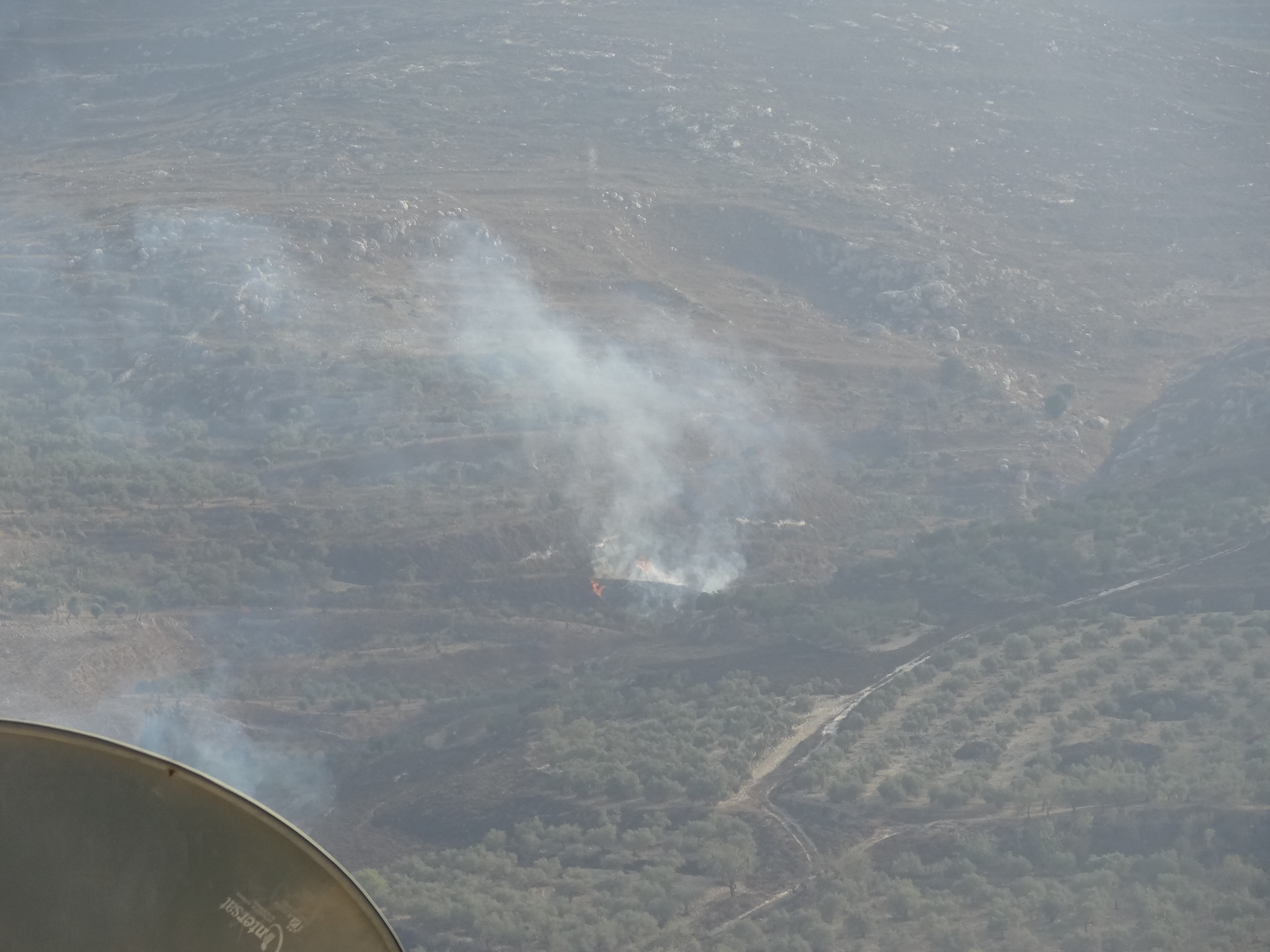Tag: Burin
-
Settlers set Palestinian land ablaze in village of Burin
By Alex Marley 15 September 2012 | International Solidarity Movement, West Bank In the afternoon of Tuesday, 11 September 2012, settlers from the illegal Israeli settlement of Yitzhar burned farmers’ land containing almond trees in the Palestinian village of Burin. Around 10 settlers came down from the nearby settlement of Yitzhar and started to burn…
-
Settlers destroy 18 olive trees Burin
By Alex Marley 11 September 2012 | International Solidarity Movement, West Bank Eighteen Palestinian-owned olive trees were destroyed by Israeli settlers in the village of Burin, near Nablus, when the illegal settlers attacked the Palestinian land on Tuesday 4 September 2012. Burin, located in the northern West Bank, comes under frequent attack from the illegal…
-
Night raids and arrests continue in Burin
By Alma Reventos 25 August 2012 | International Solidarity Movement, West Bank On Thursday August 23, Mumen Mahmoud Raja, 18, was arrested at his home by Israeli occupation forces at 2:30 a.m. Around 2 a.m., some 60 Israeli forces invaded the Palestinian village of Burin, located south-west of Nablus. They arrived in 6 military jeeps,…



